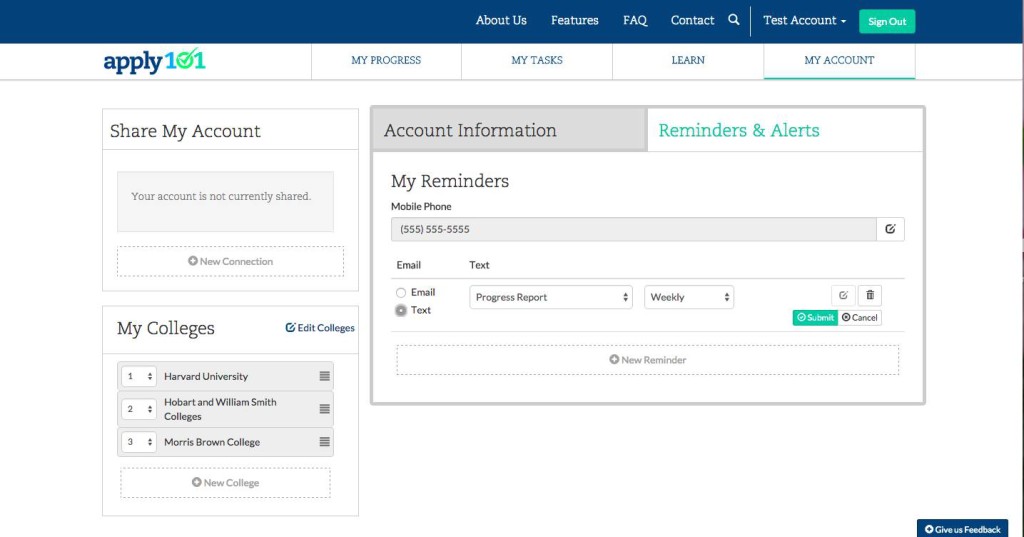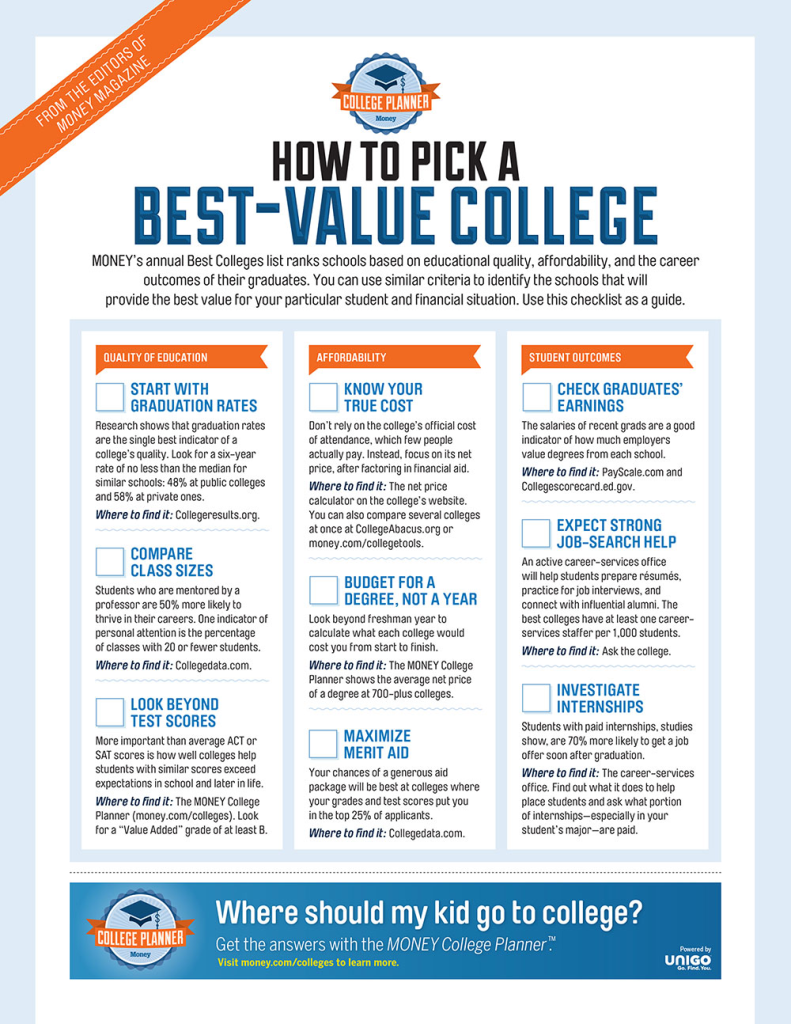
During these tough economic times, everyone is finding ways to cut costs. Pinching pennies and forgoing that latte can add up, but what about paying less for those college expenses: tuition, room and board, books, and meals. Until our economy picks up and catches up with the rising cost of tuition, parents and students need to find creative ways to cut college costs. These ten tips might help you keep a little more money in your pocket and graduate with little or no debt.
1.Consider private college
Some people believe that if you forgo the high-priced private universities, you can save some bucks. But is that really the case? The simple truth is that many private colleges give great financial aid in the form of grants and scholarships. They can do this because of their generous alumni who reinvest in their alma maters. Many times, you could end up paying less at an expensive private university than you would at a local state college.
2. Choose EA or regular decision
If you apply early decision, letting colleges know that they are your first choice college, you lose your bargaining power. That bargaining power can mean huge dividends when it comes to financial aid. If your teen is accepted to several colleges and each offers them some grants and/or scholarships, you can use those offers to negotiate more aid with the college of your choice. Early decision robs you of that negotiation.
3. Take Dual Credit and/or AP Classes
If you take dual credit classes during high school, you can get college credit at the same time you receive high school credit. In many cases, you can get enough credit to enter college as a sophomore. Additionally, if you take AP classes, be sure to take the AP tests which many colleges count as credit if you test well. By choosing either option, you can save on the cost of tuition. For more information on how this works, you can order or download a free copy of the National Center for Education Statistics’ publication: Dual Credit and Exam Based Courses.
4. Work during college
Studies show that working during college helps you with time management and organization. If you work while you’re in college you can use that money for textbooks, living expenses, and even put some it toward tuition expense. It makes better sense to work than borrow and pile up your student loan debt.
5. Don’t buy new textbooks
With all the websites offering textbook options, think before you plunk down top dollar for those new textbooks. Consider buying used, renting, or even downloading e-textbooks. All these options will save you hundreds of dollars every semester. Barnes and Noble has made this easy by providing a link where you can search for new, used, rentals and e-textbooks all in one location.
6. Live at home or become an RA (Resident Assistant)
Room and board can be a huge portion of your college expense. One option is to live at home if the college is within driving distance. If you aren’t interested in living at home, here’s another option: apply to become an RA (Resident Assistant). Some colleges allow RA’s to live rent free (which means a huge cost saving on room and board). Others give substantial discounts.
7. Use your student ID card for discounts
That student ID is useful for more than just getting into your college dorm. Use it everywhere for substantial discounts at restaurants, on clothing, on books and even groceries. Ask local businesses if they honor the student ID if you don’t see a sign at the cash register or drive-thru.
8. Consider community college
Community college is considerably cheaper and can offer you an opportunity to get some of your core subjects out of the way. The difference between $3000 for a college credit at a university and $300 a credit at a community college can add up to substantial savings. Don’t forget to check with your college first and make sure they will accept credits from the community college.
9. Take a look at your meal plan
Most students don’t need the full meal plan (3 meals a day). If you knock your meal plan down to the minimal one meal a day you can save thousands of dollars per semester. Most college students roll out of bed in the morning, grab a red bull or coffee, snack during the day and often order out late at night. Why pay for three meals a day when you don’t eat them?
10.Graduate in three years
Imagine the money you can save if you graduate in three years instead of the 4-6 years required by most college students. How is that done? First, if you were wise and took those dual credit or AP classes it’s possible to chalk up 12-15 credit hours before you ever set foot on campus. For some excellent tips on why and how to graduate in three years, check out this amazing post by a guy who advises parents on how to pay less for college: How to Graduate in 3 Years! The economy has forced all of us to tighten those belts and eliminate wasteful spending. These 10 tips can potentially save you hundreds and even thousands of dollars on college costs.







 With today’s technology, information is everywhere–from blogs, to social media, to college websites. But when you’re looking for information wouldn’t it be great to actually SPEAK with the experts and ask questions for FREE?
With today’s technology, information is everywhere–from blogs, to social media, to college websites. But when you’re looking for information wouldn’t it be great to actually SPEAK with the experts and ask questions for FREE?


